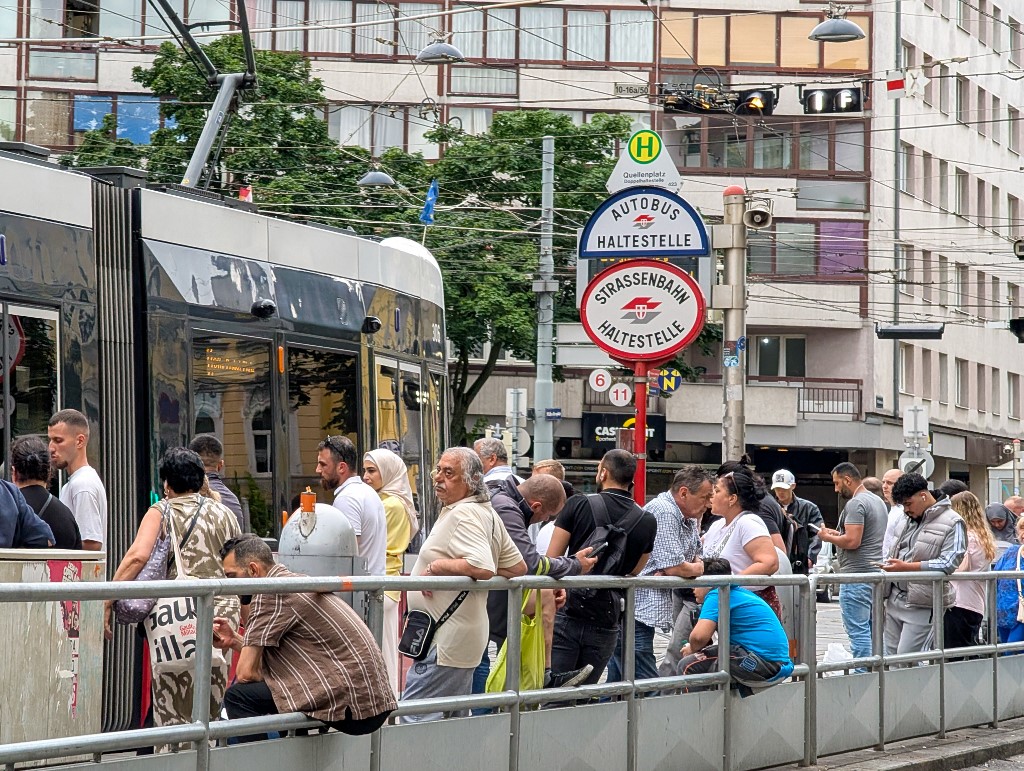
Illiteracy, Unemployment, Lack of Skills Rampant Among Migrants
A shocking survey in Austria has revealed that a significant portion of migrants living in the country are illiterate, not only in German but even in their own native language. Subsequently, their level of education is low, with unemployment in this demographic skyrocketing. Austrians' favourable views on social coexistence with immigrants deteriorating.
Unemployment has significantly increased in Austria. Statistics show that unemployment has risen among both Austrians and immigrants, as well as foreign nationals, with the rate being particularly high among adults with a migration background, according to an analysis by Statistik Austria and the Austrian Integration Fund.
In 2024, the highest unemployment rates were again observed among Afghan, Syrian and Iraqi citizens in the country.
Unemployment among Syrian, Afghan and Iraqi women is rising
In 2024, the employment rate among people with a immigrant background was 69%, around 7 percentage points lower than among the working-age population without migration backgrounds (76.4%).
The employment rate among people of Afghan, Syrian and Iraqi origin was the lowest in Austria in 2024, at 44.1%.
Employment was particularly low among Afghan, Syrian, and Iraqi women. In 2023, 197,000 individuals, representing 40.7% of those with refugee status or subsidiary protection, received social assistance or minimum income support in Austria.
Die Jugendarbeitslosigkeit bei Syrern, Afghanen und Irakern ist viermal so hoch wie bei Österreichern pic.twitter.com/fTCh4Z5nYN
— Christoph Hofer (@chr_hofer) July 16, 2025
Two-thirds of those granted refugee status are illiterate
The education level of foreign nationals living in Austria differs from that of Austrian citizens: they are overrepresented in both the lowest and highest education segments, while they are relatively underrepresented among those with intermediate-level vocational qualifications.
Among working-age foreign nationals (aged 25–64), the education level was significantly lower in 2024 among those recognized as refugees or granted subsidiary protection, with two-thirds unable to read or write.
Most do not speak German at home
The proportion of children and young people in Austria with a native language other than German has increased from 21% to 26.4% over the past ten years. In the 2023-24 school year, their numbers were particularly high in special education schools, technical schools and secondary schools, with the lowest proportion in vocational schools. Students with a different native language are more likely to leave the education system without completing compulsory education than those whose native tongue is German.
45.1% of migrants stated that they primarily or exclusively communicate in their native language at home.
The Austrian population would be in significant decline
Without immigration, Austria’s population would decline significantly, emphasized Marik-Lebeck, an expert at Statistics Austria, during the presentation of the report “Migration and Integration.” Since the number of deaths have far surpassed births in Austria for years, the population increase has solely been due to migration. Considering expected migration movements, Marik-Lebeck anticipates that the country’s population will exceed ten million by 2069.
Without migration, Austria’s population would decline to 6.9 million, returning to the 1950 level.
Focusing in on the group of people without Austrian citizenship (1.85 million as of January 2025), the largest group consists of German citizens (239,500), followed by Romanians (155,700), Turks (124,800) and Serbs (122,500). Since early 2020, the largest increases in absolute numbers have been among Ukrainian (+76,300), Syrian (+53,300), German (+39,500), Romanian (+32,300) and Croatian (+25,800) nationals.
Mehr als ein Viertel in Österreich hat Migrationshintergrund. Allgemein gebe es ein stärkeres Zugehörigkeitsgefühl zu Österreich als zum Herkunftsland. Trotzdem ist die Kritik am Zusammenleben gewachsen. https://t.co/XPHT12CYrS
— oe24.at (@oe24at) July 16, 2025
Growing negativity among people’s views on social coexistence
The 2025 Migration Report also surveyed people’s opinions on social coexistence with migrants.
The results show that criticism has significantly increased since 2022 among those native to Austria: while only 25.1% rated coexistence as “rather bad/very bad” back then, by 2025, 46.2% were critical. Only 20.9% rated coexistence as “very good/rather good.”
Immigrants themselves view coexistence between Austrians and migrants much more positively. 57.9% consider it “very good” or “rather good,” while only 13.7% view it as “rather bad/very bad.”

